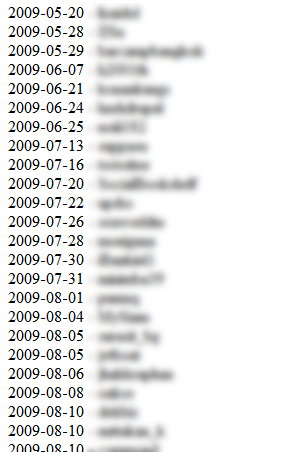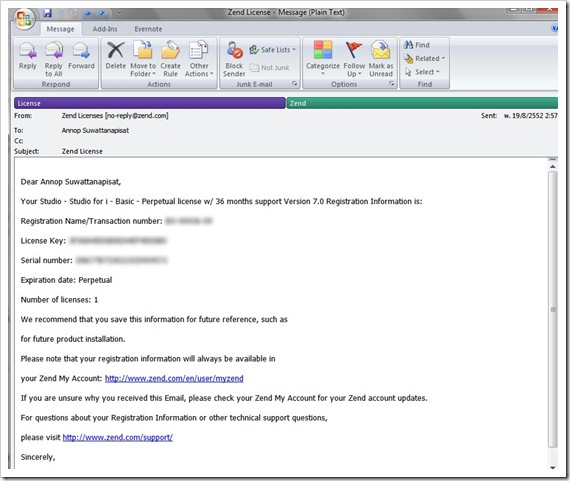entry นี้ผมกะจะเขียนตั้งนานแล้ว แต่ว่าไม่มีโอกาสเสียที วันนี้เลยเอาสักหน่อยครับ
ผมไม่เท้าความว่า Codeigniter Framework คืออะไร หาอ่านกันเอานะครับ ติดตั้งอย่างไร เขียนยังไง ทำงานอย่างไร อันนี้หาเอาได้ในเว็บต่างๆ ทั้งไทยและเทศ ผมว่ามีเยอะ ผมลุยเรื่องปรับแต่งเพิ่มเติมเลยดีกว่า
เหตุผลที่เอา Component ของ Zend Framework (ต่อไปเรียก Zend) มาใช้ใน Codeigniter (ต่อไปเรียก CI) เพราะความครบเครื่องในการนำไปใช้งาน ที่หลายๆ อย่างทำได้ดีกว่าตัว CI เยอะมาก แต่โครงสร้างและติดตั้งของ Zend ทำได้ยุ่งยากกว่า ผมเลยเอามาผสมกัน หากใครใช้ Zend มาบ้างจะทราบดีว่ามันอลังการงานสร้างแค่ไหน ครบเครื่องอย่างไร
เอาหล่ะ ไม่พูดอะไรมาก ก่อนอื่นสร้างไฟล์ที่ path ตามด้านล่างครับ
system/application/libraries/Zend.phpภายในไฟล์ก็ประกอบด้วยโค้ดตามด้วยล่างครับ
<?php
class CI_Zend {
function __construct ($class = NULL) {
ini_set('include_path', ini_get('include_path') . PATH_SEPARATOR . APPPATH . 'libraries');
if ($class) {
require_once (string) $class . EXT;
log_message('debug', "Zend Class $class Loaded");
} else {
log_message('debug', "Zend Class Initialized");
}
}
function load ($class) {
require_once (string) $class . EXT;
log_message('debug', "Zend Class $class Loaded");
}
}โดยเมื่อได้ไฟล์ Zend.php แล้ว ให้เอา Directory “Zend” ทั้งหมดไปใส่ที่
system/application/librariesเวลาใช้งาน ก็ใช้งานผ่าน Controller ของ CI โดยมี 2 แบบคือ
- โหลด Library Zend ที่เขียนสำหรับตั้ง include path ไปพร้อมๆ กับโหลด Component ไปด้วยเลย
$this->load->library('zend', 'Zend/Package/Name');- โหลดตัว Library Zend ที่เขียนสำหรับตั้ง include path ก่อน แล้วค่อยโหลดตัว Component ทีหลังเป็นตัวๆ ไปก็ได้
$this->load->library('zend');
$this->zend->load('Zend/Package/Name');การโหลด Zend Component แบบนี้ก็ทำให้ดูเป็นระเบียบกว่าการ require_once เข้ามา เพราะอย่างน้อยก็ทำให้เราทำ logs tracking ใน CI ได้ครับ รวมไปถึงการตั้ง include path เพื่อโยกย้าย Zend Framework ไปที่ไหนๆ ก็ได้ตามแต่เราตั้งใน include path โดยไม่ต้องอ้างอิง include path ของ System
เพียงเท่านี้เราก็ลั้นล้ากับ Zend ใน CI ได้สบายใจแล้วหล่ะครับ ;)


